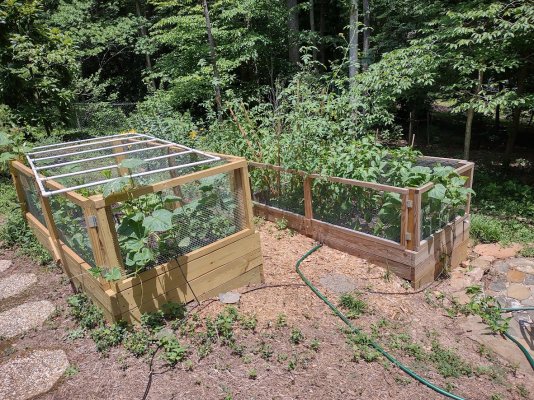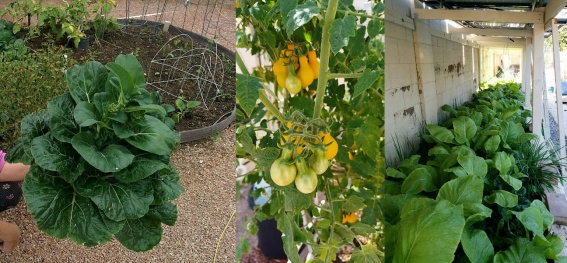The only good luck I ever had raising my own veggies was using the tips in a book called - IIRC - Square Foot Gardening. I used raised planter beds with thick protective wire cage over the plants. I no longer have room to do that.
These days , the darn squirrels dig up everything new I plant, even in pots. I finally learned to NOT fill in the holes they leave behind. Filling the holes is an open invitation to dig things up again.
Yes! I man, squirrels drive me ... squirrelly!

They are the first reason I created tops for my beds. It seems when the soil settles down, they lose their interest in digging, or, if they dig, they plants are at least established by then. I then take off the tops for the big plants like tomatoes and peppers.
A few things I learned in the last few years:
- Put bottoms of hardware cloth on your beds. This keeps out the bottom diggers like chipmunks
- Create swing-out side panels so you can access your plants
- Tops are good to keep out squirrels and deer
- Many organic compounds work "good enough" on aphids for tomatoes
- Get tomato seed varieties that are resistant to the fungi in your area
- Don't plant tomatoes in the same bed year to year
- Be careful of "deer netting" near the ground. You might catch snakes in it.
- Rain barrel water works great on small beds
- Next winter I'm going to try marine vinyl and see if I can create small greenhouses in place of my hardware cloth panels
I learned a difficult lesson on the snake thing. I have no problems with snakes, even living in copper head country. I make a lot of noise and stomp around and they leave. The black racers take care of pests. But last year I was using deer netting everywhere to keep out critters. On a very sad morning, I accidentally caught a black racer in the netting. It was a mess. The poor thing worked its way through the net and it was cutting into the skin. I don't know how to handle snakes, so I put on long thick gloves and kind of tried to cut it off and let it go. I'm not sure it made it. Now, I only use the netting on my tops, and even then, only sparingly. Expensive hardware cloth everywhere else.
Growing is super rewarding, very friendly for the environment, a great hobby for us ER folks, but also sometimes difficult and frustrating.
I think every bit helps if we can grow our own and take pressure off the California growers.
Here's my garden today. The hose is connected to a rain barrel that is 15' higher (works great). When it runs out, I use the drip lines or hand watering. You can see my deer net top I have over the lettuce. Once the lettuce is done, I'll take that off and just harvest the cukes.


